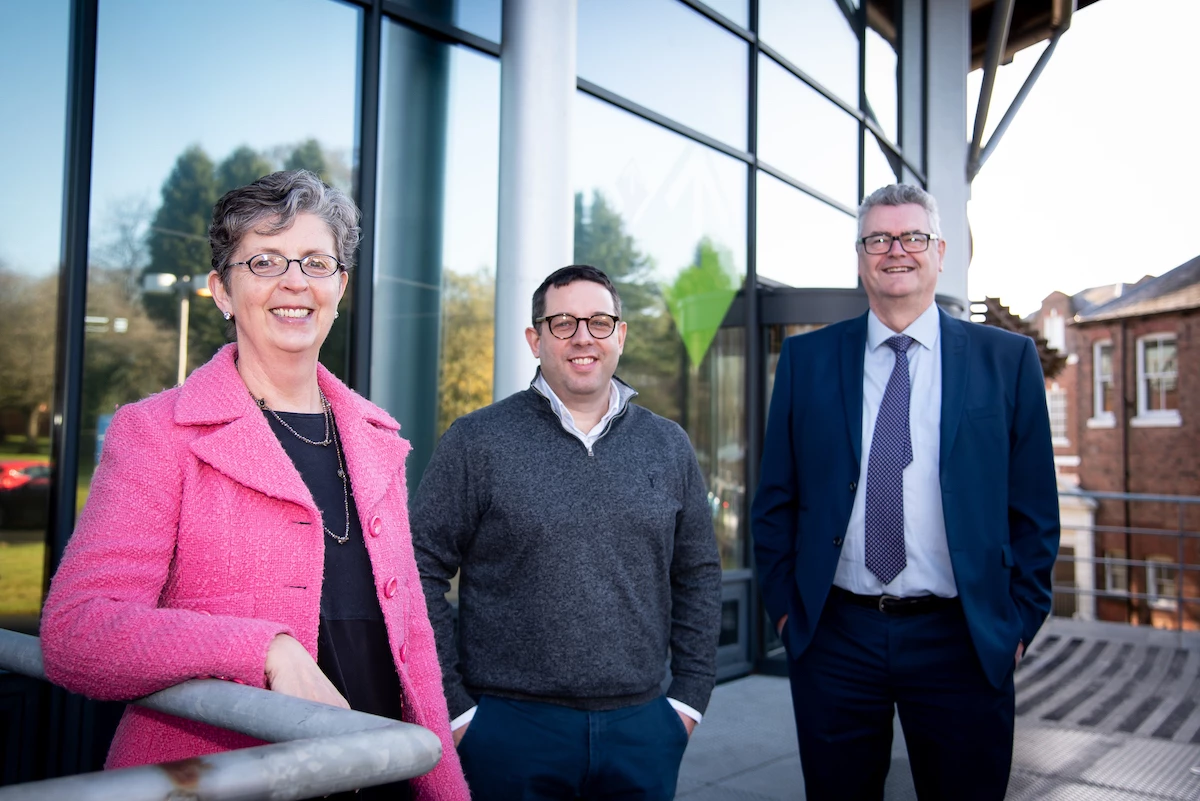
Partner Article
Service industries “have role in reducing environmental damage”
While most of the attention about carbon reduction focuses on manufacturing, a Shropshire sustainability expert has stressed the need for service industries to do their bit.
Sue Burnell, who runs Shrewsbury-based Business Net Zero, said it wasn’t just big energy-hungry manufacturers who could cut down the amount of damaging carbon emissions and waste they produce.
She said: “Every business, no matter how small, can play a part in reducing our impact on the environment.
“While it’s always easy to see where manufacturers, retailers and the hospitality industry can cut down on their energy use and waste, it’s not always easy to see where desk-based service businesses can change.
“But there is a lot that can be done by everyone. Do you need to drive to an office every day or can you work from home? Is it essential to fly to that meeting, or can it be done online? Does your coffee machine use wasteful pods and disposable cups, or would a filter machine and washable mugs work just as well?
“This is just the start. From the quality of insulation and type of lighting in your office, to how much paper and ink you use, there are numerous areas where positive change can be made. Even using an office dishwasher at the end of each day, instead of everyone washing their own cups and plates separately, can save litres of hot water.
“Small changes don’t need to cost a lot, if anything – and you will be amazed how even small changes can save you money in the long run.”
Business Net Zero has been helping numerous organisations across the county identify where their biggest carbon outputs are and how they can develop their own strategy for reducing them.
One of them is Telford-based quantity surveying company CQS Solutions.
Five members of the CQS team took part in carbon literacy training with Sue, and as a result the company has already made some big changes.
Principal surveyor Tim Lloyd said: “Every company understands that they have got a responsibility now to be future-looking and forward-looking, and it’s really important for the culture of the business to be ahead of the game and innovating in that area so we can offer clients a really unique service.
“It’s having the whole team aware of the impact of their actions, in daily life, in the work that they’re doing, and just being more conscious of the impact of all these actions, like printing things off, going to site or even boiling the kettle – all these little things.”
Tim said the company plan centred on travel, especially commuting and travelling to site. Some company cars have been swapped for electric and the firm has implemented a two day a week working from home policy for those employees who want it.
Tim said CQS was now also lobbying the landlord of its serviced offices to think about further sustainability initiatives.
He said: “We have been and spoken to our landlord about where the energy supply comes from, what they do with the waste, what sort of heating controls they have, basically to put some pressure on them to make some promises as well.
“If that comes off there is a whole campus where we are that would be affected. That’s the idea really – to effect some change which is bigger than just us.”
Tim said he would recommend other businesses to do the carbon literacy course with Business Net Zero. He said: “I would definitely recommend it. The direct consequences could be savings on things like energy, commuting and fuel.
“The indirect ones are that you can affect your customer’s behaviour or your supplier’s behaviour and achieve those wider benefits.”
For more information about the environmental advice and training available through Business Net Zero, visit www.businessnetzero.com/
This was posted in Bdaily's Members' News section by Melanie Boulter .








 Navigating the messy middle of business growth
Navigating the messy middle of business growth
 We must make it easier to hire young people
We must make it easier to hire young people
 Why community-based care is key to NHS' future
Why community-based care is key to NHS' future
 Culture, confidence and creativity in the North East
Culture, confidence and creativity in the North East
 Putting in the groundwork to boost skills
Putting in the groundwork to boost skills
 £100,000 milestone drives forward STEM work
£100,000 milestone drives forward STEM work
 Restoring confidence for the economic road ahead
Restoring confidence for the economic road ahead
 Ready to scale? Buy-and-build offers opportunity
Ready to scale? Buy-and-build offers opportunity
 When will our regional economy grow?
When will our regional economy grow?
 Creating a thriving North East construction sector
Creating a thriving North East construction sector
 Why investors are still backing the North East
Why investors are still backing the North East
 Time to stop risking Britain’s family businesses
Time to stop risking Britain’s family businesses